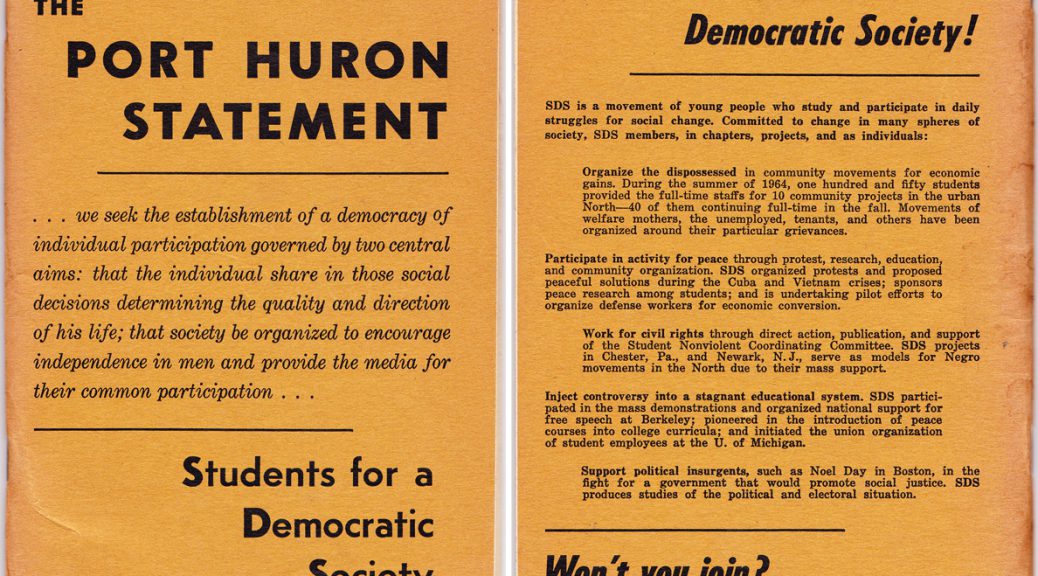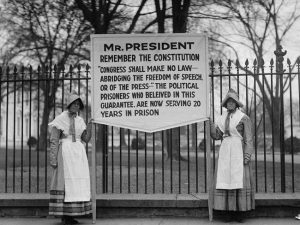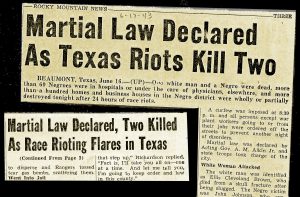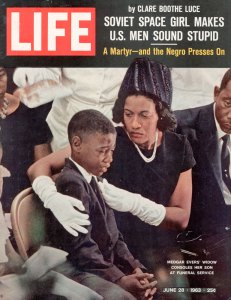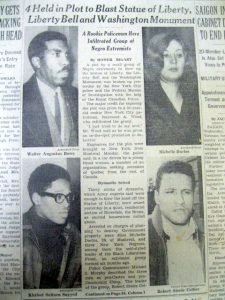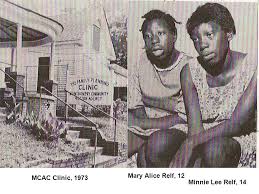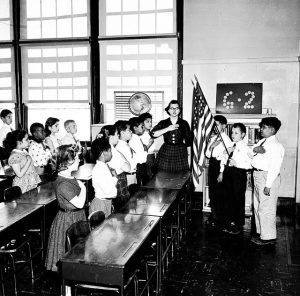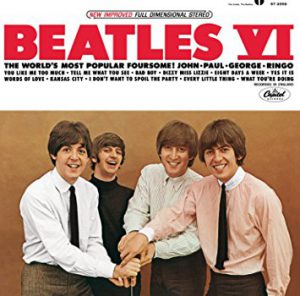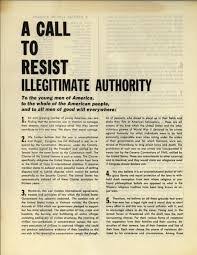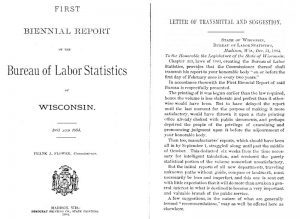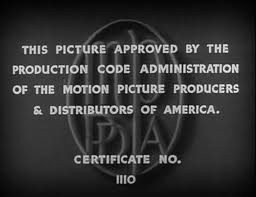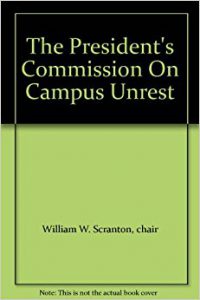June 15 Peace Love Art Activism
BILL OF RIGHTS
June 15, 1215: King John sealed the Magna Carta at Runnymede, establishing certain fundamental rights as part of the law in England. [British Library article] (see December 16, 1689)
June 15 Peace Love Art Activism
Feminism
Death Penalty/Margaret Jones
June 15, 1648: Margaret Jones of Plymouth was found guilty of witchcraft and was sentenced to be hanged. Hers was the first execution for witchcraft in the Massachusetts Bay colony. Jones was a herbalist, midwife and self-described physician. [History of Massachusetts article] (next Death Penalty, see March 24, 1661)
Of Husband and Wife
From 1776 – 1830 State laws rather than federal law governed women’s rights in the United State and most of those laws were based on Sir William Blackstone’s 1769 “Of Husband and Wife” in his Commentaries on the Laws of England. In “Of Husband and Wife” he explained the legal concept of Coverture, whereby, upon marriage, a woman’s legal rights were subsumed by those of her husband. He explained:
By marriage, the husband and wife are one person in law: that is, the very being or legal existence of the woman is suspended during the marriage, or at least is incorporated and consolidated into that of the husband: under whose wing, protection, and cover, she performs every thing; and is therefore called in our law-French a feme-covert; is said to be covert-baron, or under the protection and influence of her husband, her baron, or lord; and her condition during her marriage is called her coverture. Upon this principle, of a union of person in husband and wife, depend almost all the legal rights, duties, and disabilities, that either of them acquire by the marriage. I speak not at present of the rights of property, but of such as are merely personal. For this reason, a man cannot grant any thing to his wife, or enter into covenant with her: for the grant would be to suppose her separate existence; and to covenant with her, would be only to covenant with himself: and therefore it is also generally true, that all compacts made between husband and wife, when single, are voided by the intermarriage. [Lonang Institute article] (see May 20, 1782)
June 15 Peace Love Art Activism
Anarchism in the US and Emma Goldman
Espionage Act
June 15, 1917: President Woodrow Wilson signed the Espionage Act, which set penalties of up to thirty years’ imprisonment and fines of up to $10,000 for persons aiding US enemies, interfering with the draft, or encouraging disloyalty in the armed forces. On the same day, Goldman, Berkman, and William Bales are arrested at the Mother Earth offices. Manuscripts, letters and subscription lists, as well as subscription lists for the No-Conscription League and another publication, The Blast, are confiscated. [Digital History article on Act] (Espionage Act, see March 3, 1919; see Goldman for expanded story)
June 15 Peace Love Art Activism
BLACK HISTORY
Duluth, Minnesota lynching
June 15, 1920: a mob in Duluth, Minnesota attacked and lynched three African American circus workers. Rumors had circulated that six African Americans had raped and robbed a teenage girl. A physician’s examination subsequently found no evidence of rape or assault. [Minnesota Historical Society article] (BH, see July 20; next Lynching, see Oct 5; Duluth lynching see October 10, 2003; for for expanded chronology, see American Lynching 2)
Congress of Racial Equality
June 15, 1943: a group of students, including James Farmer and Bayard Rustin, founded the Congress of Racial Equality (CORE) in Chicago.. They had found inspiration in Mahatma Gandhi and his nonviolent victory over British colonial rule of India for their struggle to achieve full legal rights for African Americans. [CORE site] (see June 15)
Beaumont, Texas Race Massacre
June 15, 1943: a mob of white shipyard workers in Beaumont, Texas, confronted African-American employees after a local white woman claimed that she had been raped by an African-American man. The mob of roughly 3000 men marched on City Hall to capture the man who had been arrested for the crime, then broke into smaller groups and began destroying property in the nearby black neighborhoods and attacking African-American citizens. In total, the mob robbed and burned more than 100 homes.
The Mayor of Beaumont called in the National Guard to dismantle the mob, and the town was placed under martial law for five days. During this time, all roads into the city were blocked, African Americans were not allowed to go to work, and all public gatherings were cancelled. By the end of the riots, 21 people had been killed and more than 200 were arrested. Only 29 of the 200 arrested were charged, and no one was prosecuted for any of the deaths. [Black Past article] (see June 20)
Freedom Riders (Florida)
June 15, 1961: shortly before the Florida Freedom Riders were scheduled to board an airplane and return to Washington, D.C., they and local activists attempted to integrate the Tallahassee Airport’s segregated restaurant. The restaurant closed to avoid serving the riders and eight riders departed as planned for Washington. Ten riders and three local activists remained at the airport and demanded service throughout the night and into the following day. On June 16, 1961, the group was arrested and charged with unlawful assembly. (see June 16)
Medgar Evers funeral
June 15, 1963: wake of Medgar Evers in Jackson, Mississippi [images] (BH, see June 18; Evers, see June 23)
George Whitmore, Jr
June 15, 1967: Kings County Supreme Court Justice Philip M. Kleinfeld granted a motion to release George Whitmore, Jr. on $5,000 bail. The additional time he had spent in custody following his third conviction in the Elba Borrero case had added 395 days of incarceration to the 810 days he had served pending his first two trials and his first release on bail, bringing Whitmore’s total incarceration time to two years, fifteen weeks, and five days. (BH, see June 27; see GW for expanded story)
June 15 Peace Love Art Activism
Bonus March
June 15, 1932: the Patman bill (see May 29) passed in the House of Representatives. [Politico article] (see June 17)
June 15 Peace Love Art Activism
Cultural Milestones
Port Huron Statement
June 15, 1962: Students for a Democratic Society issued the Port Huron Statement at the conclusion of a five-day convention in Michigan. The 25,700-word statement “articulated the fundamental problems of American society and laid out a radical vision for a better future“. It issued a nonideological call for participatory democracy, “both as a means and an end“, based on non-violent civil disobedience and the idea that individual citizens could help make “those social decisions determining the quality and direction” of their lives. Also known as the “Agenda for a Generation”, it “brought the term ‘participatory democracy’ into the common parlance”. [original draft] (see June 25)
“Hee Haw”
June 15, 1969: the variety show “Hee Haw” premiered on CBS. (see Nov 10)
June 15 Peace Love Art Activism
July 15 Music et al
“Sukiyaki”
June 15 – July 5, 1963: “Sukiyaki” by Kyo Sakamot #1 on the Billboard Hot 100. It remains the only Japanese song to reach number one on the Billboard pop charts in the US
Bob Dylan
June 15, 1965: Dylan recorded “Like a Rolling Stone” at Columbia Studios in NYC. Mike Bloomfield played lead guitar. Guest Al Kooper slides behind Hammond organ uninvited. Dylan and producer Tom Wilson disagree about the organ, but Dylan insists the instrument be brought forward in the mix.
Columbia released the single on July 20, it is considered by some to be the greatest rock and roll song ever. (see June 21)
The Graduate
June 15 – June 28. 1968: Simon and Garfunkel’s soundtrack to The Graduate is again the Billboard #1 album.
The Road to Bethel: June 15, 1969
- local residents Cliff Reynolds and Brent Rismiller (also aState policeman) hired Jules Minker (a local lawyer who worked in NYC) to bring an injunction against festival.
- Wes Pomeroy arrived in Wallkill. Late that night Pomeroy heard about the threats Howard Mills and his family had anonymously received. Set up security around Mills’ house. (see Road for expanded story)
June 15 Peace Love Art Activism
Voting Rights
Reynolds v. Sims
June 15, 1964: the US Supreme Court ruled that state legislature districts had to be roughly equal in population. The case was brought on behalf of voters in Alabama, but the decision affected both northern and southern states that had similarly failed to reapportion their legislatures in keeping with changes in state population. [Oyez article] (see June 19)
June 15 Peace Love Art Activism
Daniel Ellsberg/Pentagon Papers
June 15, 1971: invoking “prior restraint,” the government obtained from the court a temporary injunction to stop The New York Times from publishing any more material from the Pentagon Papers. (see DE/PP for expanded story)
June 15 Peace Love Art Activism
Stop and Frisk Policy
June 15, 1976: The case, People v. De Bour, established criteria for police stop-and-frisk. [Justia article] (see March 9, 1999)
June 15 Peace Love Art Activism
Irish Troubles
Hunger Strike increases
June 15, 1981: Sinn Féin issued a statement to say that a Republican prisoner would join the hunger strike every week. [This was seen as a stepping-up of the hunger strike. Paddy Quinn, then an Irish Republican Army (IRA) prisoner joined the strike.]
Sunday Bloody Sunday
June 15, 2010: The report on the second inquiry into Sunday Bloody Sunday (1972) is published. It stated, “The firing by soldiers of 1 PARA on Bloody Sunday caused the deaths of 13 people and injury to a similar number, none of whom was posing a threat of causing death or serious injury,” and also said, “The immediate responsibility for the deaths and injuries on Bloody Sunday lies with those members of Support Company whose unjustifiable firing was the cause of those deaths and injuries.” The head of the committee, Lord Saville of Newdigate, stated that British paratroopers “lost control.” [Irish News timeline article] (see Troubles for more)
June 15 Peace Love Art Activism
Immigration History
Student Rights/Plyler v. Doe
June 15, 1982: in Plyler v. Doe the US the Supreme Court struck down a state statute denying funding for education to illegal immigrant children and simultaneously struck down a municipal school district’s attempt to charge illegal immigrants an annual $1,000 tuition fee for each illegal immigrant student to compensate for the lost state funding.
The Court found that where states limit the rights afforded to people (specifically children) based on their status as immigrants, this limitation must be examined under an intermediate scrutiny standard to determine whether it furthers a substantial goal of the State. [Oyez article] (IH, see August 28, 1987; SR, see April 26, 1983; P v D, see March 11, 2014)
DACA
June 15, 2012: President Obama announced the Deferred Action for Childhood Arrivals (DACA), a policy that allowed certain illegal immigrants who entered the country as minors, to receive a renewable two-year period of deferred action from deportation and eligibility for a work permit. The date was the anniversary of Plyler v. Doe, which barred public schools from charging illegal immigrant children tuition. Republican Party leaders denounced the program as an abuse of executive power. [Obama remarks] (Immigration, see May 24, 2013; DACA, see September 5, 2017)
Kerry v Din
June 15, 2015: the US Supreme Court held 5 -4 that because Kanishka Berashk was not a U.S. citizen, he did not have the right to get a court review, and his U.S. citizen wife also did not have a due-process right to get the visa denial challenged in a federal court.
Steven Yale-Loehr, a law professor at Cornell University, said the Supreme Court’s decision on this case has a much broader impact on immigration to the U.S.
“If a U.S. citizen marries a Chinese citizen in China and tries to petition through the green-card process to have the foreign spouse come over to the United States, and if the U.S. (consulate) in Guangzhou were to deny the visa because the foreign spouse is a former member of the Communist Party, or they allege maybe the Chinese citizen committed some crimes in the past even though it is unproven, that would not be reviewable in the U.S. court,” Yale-Loehr said.
That means the couple would be either separated or the U.S. citizen spouse would have to move to China to live there with his or her spouse, he added.
Kerry William Bretz, a New York-based immigration attorney, said the court clearly separated the rights for people inside and outside the U.S.
“Due process applies to people who are in the United States, whether you are a citizen, not a citizen and you cross the border without inspection,” Bretz said. “It does not apply to people abroad.
“Most of the folks that are looking for review of the denial of visas are abroad and they are asking for a nonimmigrant visa, and any nonimmigrant visa is at the discretion of the Department of State,” he said. [Justia article]
Mata v. Lynch
June 15, 2015: Noel Reyes Mata, an undocumented immigrant from Mexico, was put in deportation proceedings after he was convicted of assault. Mata’s appeal was ultimately denied by the Immigration Board of Appeals after his attorneys failed to submit the appeals brief and later missed the deadline in filing motions to reopen the case.
After the lower court dismissed Mata’s case, the U.S. Supreme Court held that the federal appeals court has the authority to hear his case and decide whether people facing deportation should be able to extend the deadlines in immigration proceedings.
Yale-Loehr, of Cornell University, said the Supreme Court emphasized procedural protections in immigration deportation proceedings.
“The Supreme Court said, ‘Look, we are not going to decide whether the Mexican citizen case should be overturned, but at least the federal court has jurisdiction to hear the case.’ ” [Oyez article] (see June 16)
June 15 Peace Love Art Activism
CLINTON IMPEACHMENT/June 15, 1998
- deputy White House Counsel Bruce Lindsey filed an appeal of federal Judge Norma Holloway Johnson’s decision to deny him attorney-client privilege in the Lewinsky case.
- the publication of an article in the new magazine of media criticism, Brill’s Content, alleging that Ken Starr leaked information to the media leads Judge Holloway to hold a private meeting with lawyers for both sides of the case to investigate the charges. The magazine’s editor and creator, Steven Brill, said Starr admitted to the leaks in a 90-minute interview. (see CI for expanded story)
June 15 Peace Love Art Activism
Iraq War II
June 15, 2006: number of U.S. troops killed in Iraq reaches 2,500 [Reuters, 6/15/06] (see June 20)
June 15 Peace Love Art Activism
Fourth Amendment
Hudson v. Michigan
June 15, 2006: the US Supreme Court held that a violation of the Fourth Amendment requirement that police officers knock, announce their presence, and wait a reasonable amount of time before entering a private residence (the knock-and-announce requirement) does not require suppression of the evidence obtained in the ensuing search. [Oyez article] (see July 25, 2009)
June 15 Peace Love Art Activism
Foxconn
June 15, 2006: Apple investigated claims that Chinese female workers at a factory in Longhu which manufactures the iPod nano music players, earned only $50 a month, work 15-hour shifts, and endure “slave” conditions, contrary to the company’s stated employment policies. (see May 25, 2010)
June 15 Peace Love Art Activism
Volunteering
June 15, 2010: according to “Volunteering in America,” 63.4 million Americans gave 8.1 billion hours through formal organizations in 2009.
June 15 Peace Love Art Activism
Sexual Abuse of Children
June 15, 2015: Archbishop John C. Nienstedt and an auxiliary bishop, Lee A. Piché, of the Roman Catholic Archdiocese of St. Paul and Minneapolis resigned their posts, the second time this spring that American church leaders had stepped aside after complaints over their handling of sexual abuse claims involving priests.
Nienstedt and Piché, announced their departures less than two weeks after prosecutors in St. Paul accused the archdiocese of willfully ignoring warning signs of a pedophile priest. Their resignations followed the April exit (see April 21, 2015), of Bishop Robert W. Finn from the Diocese of Kansas City-St. Joseph in Missouri, who had been convicted of a misdemeanor for failing to report a priest who took pornographic pictures of girls. [NYT article] (see Aug 4)
June 15 Peace Love Art Activism
Women’s Health
June 15, 2015: the U.S. Supreme Court rejected an appeal from North Carolina to revive a requirement that abortion providers show and describe an ultrasound to a pregnant woman before she has an abortion.
The justices left in place an appeals court decision that said the 2011 North Carolina law was “ideological in intent” and violated doctors’ free-speech rights.
The North Carolina law would have required abortion providers to display and describe the ultrasound even if the woman refused to look and listen – a mandate that the court found particularly troublesome.
“North Carolinians should take comfort in knowing that this intrusive and unconstitutional law, which placed the ideological agenda of politicians above a doctor’s ability to provide a patient with the specific care she needs, will never go into effect,” Sarah Preston, acting executive director of the ACLU of North Carolina, said in a statement. “We’re very glad the courts have recognized that politicians have no business interfering in personal medical decisions that should be left to a woman and her doctor.” [NYT article] (see June 29)
June 15 Peace Love Art Activism
Cannabis
June 15, 2015: the Colorado Supreme Court ruled that employers’ zero-tolerance drug policies trump Colorado’s medical marijuana laws. In a 6-0 decision, the Colorado Supreme Court affirmed lower court rulings that businesses can fire employees for the use of medical marijuana — even if it’s off-duty. [Denver Post article] (next Cannabis, see June 18 or see CCC for expanded cannabis chronology)
June 15 Peace Love Art Activism
LGBTQ
June 15, 2020: the NY Times reported that the Supreme Court had ruled in BOSTOCK v. CLAYTON COUNTY, GEORGIA that Title VII of the Civil Rights Act of 1964 protects gay and transgender workers from workplace discrimination.
The vote was 6 to 3, with Justice Neil M. Gorsuch writing the majority opinion. In the beginning of his opinion, he wrote: Sometimes small gestures can have unexpected consequences. Major initiatives practically guarantee them. In our time, few pieces of federal legislation rank in significance with the Civil Rights Act of 1964.
He was joined by Chief Justice John G. Roberts Jr. and Justices Ruth Bader Ginsburg, Stephen G. Breyer, Sonia Sotomayor and Elena Kagan.
The Civil Rights Act of 1964 bars employment discrimination based on race, religion, national origin and sex. The question for the justices was whether that last prohibition — discrimination “because of sex”— applies to many millions of gay and transgender workers.
The decision, covering two cases, was the court’s first on L.G.B.T. rights since the retirement in 2018 of Justice Anthony M. Kennedy, who wrote the majority opinions in all four of the court’s major gay rights decisions. (next LGBTQ, see Oct 5)
June 15 Peace Love Art Activism
Native Americans
June 15, 2023: the Supreme Court preserved the system that gives preference to Native American families in foster care and adoption proceedings of Native children, rejecting a broad attack from some Republican-led states and white families who argued it is based on race.
The court left in place the 1978 Indian Child Welfare Act, which was enacted to address concerns that Native children were being separated from their families and, too frequently, placed in non-Native homes.
Tribal leaders have backed the law as a means of preserving their families, traditions and cultures and had warned that a broad ruling against the tribes could have undermined their ability to govern themselves. [AP article] (next NA, see Aug 8)

